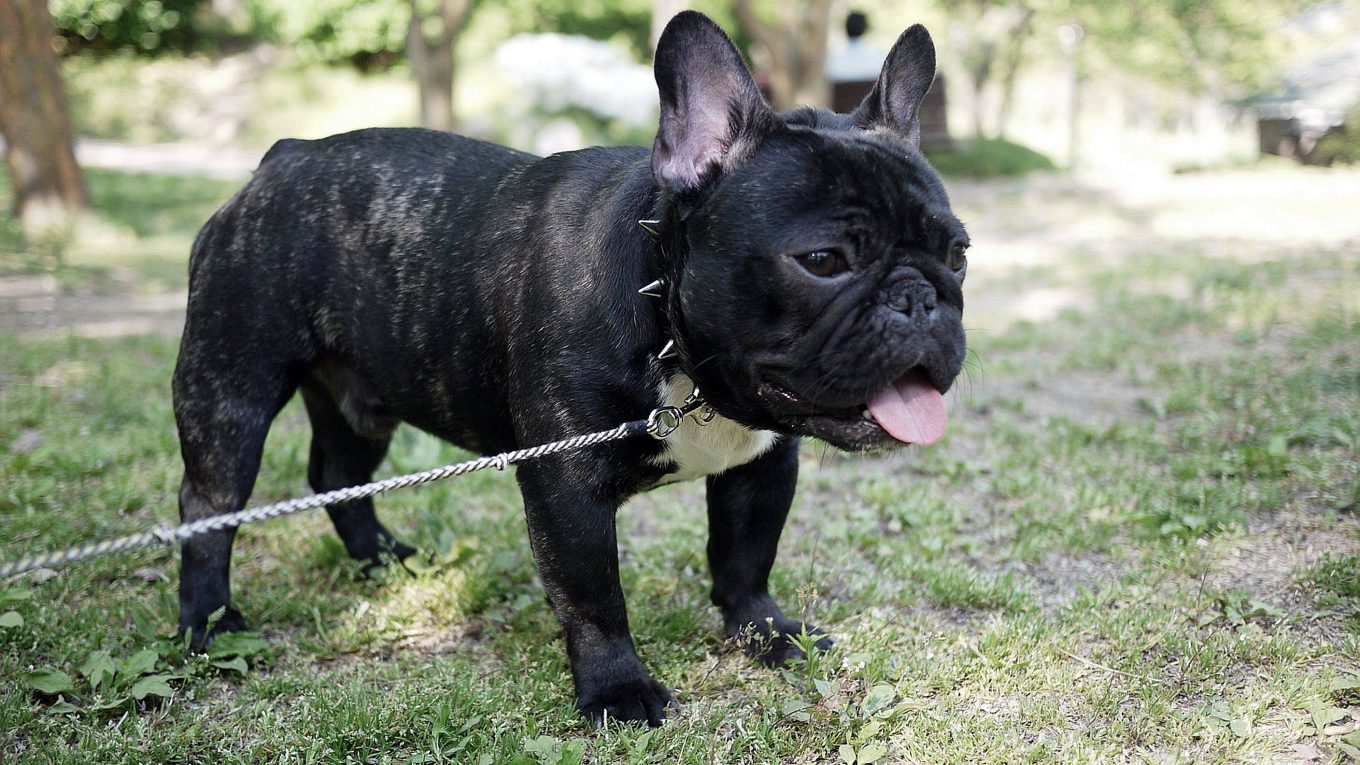Can French bulldogs have beans?
Are you the proud parent of a French bulldog, constantly pondering what’s on the menu for your furry companion? Well, fret not. The dietary needs of these lovable canines have piqued the curiosity of pet owners worldwide. And when it comes to beans, the question lingers: Can French bulldogs indulge in this legume delight?
In this blog post, we embark on a culinary adventure through the world of French bulldog nutrition to uncover the truth about beans. Brace yourself as we navigate their unique anatomy and dietary requirements, exploring the potential perks and pitfalls that come with adding beans to their bowls. So, let’s roll up our sleeves (or rather, paws) and get ready to dish out some canine culinary wisdom.
Types of Beans That are Safe for French Bulldogs
Contents
- 1 Types of Beans That are Safe for French Bulldogs
- 2 Nutritional Benefits of Feeding Beans to French Bulldogs
- 3 How to Prepare Beans for French Bulldogs
- 4 What Ingredients Should be Avoided When Feeding Beans to French Bulldogs?
- 5 The Dangers of Feeding Raw or Undercooked Kidney Beans to French Bulldogs
- 6 Symptoms of Toxicity in French Bulldogs After Eating Certain Types of Beans
- 6.1 Kidney Beans: Beware of Lectin
- 6.2 Fava Beans: The Silent Menace
- 6.3 Lima Beans: A Deadly Delicacy
- 6.4 Remember, not all beans are toxic to French Bulldogs. Safe options include green beans and black beans, which can provide valuable nutrients while being gentle on your pup’s stomach. However, moderation is key, and any new food should be introduced gradually.
- 7 Introducing Beans into Your French Bulldog’s Diet
- 8 Monitoring Your Dog’s Reaction After Eating Beans
- 9 Conclusion
French Bulldogs are beloved companion dogs known for their friendly nature and distinctive appearance. As responsible pet owners, we strive to provide them with a balanced and nutritious diet. While commercial dog foods offer convenience, adding fresh and wholesome ingredients can enhance their overall well-being. One such addition is beans, which can be a safe and healthy option for French Bulldogs when chosen and prepared wisely.
Green Beans: Crunchy Delights for Your Frenchie
Green beans are a fantastic choice for French Bulldogs. They are low in calories, high in fiber, and packed with essential vitamins and minerals. These benefits aid digestion, promote weight management, and support a healthy coat. Remember to remove the ends and any strings before feeding them to your Frenchie.
Lentils: Protein Powerhouses for Your Pup

Lentils are another bean variety that offers numerous health benefits for French Bulldogs. Rich in protein, fiber, iron, and folate, lentils contribute to muscle development, digestive health, and a robust immune system. Ensure that the lentils are cooked thoroughly to aid digestion and prevent any potential discomfort.
Black Beans: A Nutrient-Rich Delicacy

Black beans provide an excellent source of protein, fiber, vitamins, and minerals such as folate and iron. These nutrients contribute to your Frenchie’s overall health and vitality. Remember to rinse canned black beans to reduce sodium content before serving them to your furry friend.
Kidney Beans: Proceed with Caution
Kidney beans are a source of protein, fiber, vitamins, and minerals; however, they should be introduced cautiously due to the presence of lectins when raw or undercooked. Make sure kidney beans are thoroughly cooked before offering them to your Frenchie.
Chickpeas: Versatile and Nutritious Beans
Chickpeas, also known as garbanzo beans, are a delightful addition to your Frenchie’s diet. Packed with protein, fiber, iron, and folate, they can support muscle development, promote digestive health, and boost energy levels. Cooked chickpeas can be served as a treat or mixed into your dog’s regular meals.
Conclusion:
Choosing the right types of beans and preparing them appropriately allows you to introduce a nutritious and safe alternative into your French Bulldog’s diet. Green beans, lentils, black beans, kidney beans (cooked thoroughly), and chickpeas are all options that can provide essential nutrients while being gentle on your Frenchie’s digestive system. Remember to introduce new foods gradually and monitor your dog for any adverse reactions.
Always consult with your veterinarian to ensure that the addition of beans aligns with your Frenchie’s specific dietary needs.
Nutritional Benefits of Feeding Beans to French Bulldogs
We all want the best for our French Bulldogs, don’t we? Well, did you know that beans can be a secret weapon in keeping your furry friend healthy and happy? That’s right. These little legumes are packed with nutritional goodness that can give your French Bulldog the boost they need. Let’s dive into the fantastic benefits of feeding beans to your French Bulldog:
Protein Powerhouse:
Beans are like little protein powerhouses. They’re loaded with this muscle-building nutrient that is essential for your French Bulldog’s growth and maintenance. Protein helps develop strong bones and supports a healthy immune system. So, next time you’re cooking up some beans, share a spoonful with your furry friend.
Fiberlicious Goodness:
French Bulldogs can sometimes struggle with digestion, leading to tummy troubles. But fear not. Beans are rich in fiber, which keeps their digestion on track and prevents constipation. Fiber promotes healthy bowel movements and reduces the risk of gastrointestinal issues. It’s like giving your French Bulldog a digestive superhero.
Vitamin Bonanza:
Beans aren’t just tasty; they’re chock-full of essential vitamins and minerals. Folate, potassium, magnesium, and iron are just a few of the nutrients found in beans that benefit your French Bulldog’s health. Folate helps with cell division and red blood cell production, while potassium maintains proper nerve and muscle function. Magnesium supports bone health and energy production, and iron ensures oxygen gets where it needs to go. Talk about a vitamin bonanza.
Low Fat, Big Benefits:
We all know that French Bulldogs can easily pack on the pounds. That’s why it’s crucial to provide them with a diet low in fat. And guess what? Beans are naturally low in fat. They offer a nutritious alternative to fatty meats, helping your French Bulldog maintain a healthy weight. It’s like giving them a tasty, guilt-free treat.
Antioxidant Avengers:
Black beans and kidney beans are like the superheroes of the legume world. They contain antioxidants that fight off those pesky free radicals in your French Bulldog’s body. This superhero power can reduce the risk of chronic diseases like cancer and heart disease. Who knew beans could be so heroic?
Now, before you go tossing a can of beans to your French Bulldog, remember to prepare them properly. Raw or undercooked beans can be toxic to dogs due to lectins, which can cause digestive upset. Soak the beans overnight or cook them thoroughly to ensure they’re safe for your furry friend.
How to Prepare Beans for French Bulldogs
French Bulldogs are known for their unique dietary needs and sensitivities. While beans can be a nutritious addition to their diet, it is crucial to prepare them properly to ensure your furry friend’s safety and digestion. In this article, we will guide you through the steps of safely preparing beans for your French Bulldog.
Choose the Right Beans:
When selecting beans for your French Bulldog, opt for plain, unseasoned varieties like kidney beans, black beans, or pinto beans. Avoid canned beans that contain added salt or seasonings, as these can be harmful to your dog’s health.
Cook Thoroughly:
Raw or undercooked beans can be difficult for French Bulldogs to digest and may cause digestive issues like gas or bloating. Soak the beans overnight and then boil them until they are soft and fully cooked. This process helps remove any toxins and makes the beans easier to digest.
Cool Down Completely:
Beans should be cooled down completely before serving them to your French Bulldog. Hot or warm beans can cause burns or discomfort in your dog’s mouth or throat. Let them cool down to room temperature or refrigerate them before offering them as a treat.
Portion Appropriately:
Beans should only make up a small percentage of your dog’s overall diet. Consult with your veterinarian to determine the appropriate portion size based on your dog’s specific dietary needs. Overfeeding beans can lead to nutrient imbalances, so it’s essential to get the portion right.
Monitor Your Dog’s Reaction:
Every dog is different, and some may have sensitivities or allergies to certain types of beans. Watch out for any signs of discomfort or adverse reactions after introducing beans into their diet. If you notice any digestive issues or abnormalities, consult with your veterinarian for further guidance.
What Ingredients Should be Avoided When Feeding Beans to French Bulldogs?
Well, hold your horses. Before you go dishing out those legumes, it’s essential to know which ingredients to avoid. Trust me, your pup will thank you later.
First up on the no-no list is garlic. Now, I know what you’re thinking – “But garlic is good for humans.” Well, my friend, that may be true, but dogs are not so lucky. Garlic contains compounds that can wreak havoc on a dog’s red blood cells, leading to anemia and other serious health issues. So, when it comes to beans, make sure they’re garlic-free.
Next up is salt. We all love some salty snacks, but too much sodium can be a real party pooper for your pooch. High-sodium bean dishes like canned baked beans or refried beans can dehydrate your dog and even contribute to kidney problems down the line. Stick to low-sodium options or whip up your own homemade bean concoctions.
Now, let’s talk spices. Spices are fun and flavorful, but some of them can turn your pup’s tummy into a whirlwind of chaos. Ingredients like chili powder or cayenne pepper might add a kick to your beans, but they can cause serious digestive distress for your French Bulldog. Keep it simple with lightly seasoned or plain bean recipes.
Last but not least, let’s talk about the beans themselves. Kidney beans may sound fancy, but they contain lectins – proteins that can be toxic if not cooked properly. Raw or undercooked kidney beans are a big no-no for our furry pals. And hey, while we’re at it, watch out for lima beans too – they can cause some tummy troubles if consumed in large amounts.
The Dangers of Feeding Raw or Undercooked Kidney Beans to French Bulldogs
Picture this: you’re in the kitchen, whipping up a delicious meal for yourself, and your French Bulldog is giving you those irresistible puppy dog eyes. You think, “Why not share the love and give them a taste of what I’m cooking?” But hold your horses. When it comes to beans, specifically kidney beans, it’s important to know the potential dangers of feeding them raw or undercooked to your furry friend.
Raw or undercooked kidney beans contain a toxin called lectin, which goes by the fancy name phytohaemagglutinin. This toxin is not exclusive to kidney beans; it can be found in many types of beans. However, kidney beans have the highest concentration of this dangerous substance. Lectins are tough proteins that can wreak havoc on your French Bulldog’s digestive system.
You see, our adorable French Bulldogs, like other breeds of dogs, lack the necessary enzymes to properly digest lectins. When ingested in their raw or undercooked form, lectins can cause severe gastrointestinal distress in our furry friends. Symptoms such as vomiting, diarrhea, abdominal pain, and bloating may occur. Imagine your poor pup going through all that discomfort.
But wait, there’s more. Lectin poisoning can lead to even more serious complications. Dehydration is a risk due to excessive vomiting and diarrhea. In some cases, lectin poisoning can even lead to pancreatitis, a painful inflammation of the pancreas. We definitely don’t want our French Bulldogs experiencing any of these issues.
Now, here’s where it gets tricky. Even if you think you’ve cooked those kidney beans just right, they may still contain residual levels of lectins that can be harmful to your French Bulldog. So it’s best to avoid feeding any type of kidney beans, whether raw or cooked, to your pooch altogether. It’s better to be safe than sorry, right?
If you suspect that your French Bulldog has ingested raw or undercooked kidney beans, it’s crucial to contact your veterinarian immediately. They will provide guidance and potential treatment options to help your furry friend feel better as quickly as possible.
In conclusion, when it comes to feeding beans to your French Bulldog, play it safe and stick with the right ingredients. Avoid the dangers of raw or undercooked kidney beans and opt for other delicious and dog-friendly alternatives. Your French Bulldog will thank you for it, and you can both enjoy mealtime without any worries.
Symptoms of Toxicity in French Bulldogs After Eating Certain Types of Beans
French Bulldogs are beloved companions known for their playful personalities and distinctive appearances. As responsible pet owners, it’s essential to be aware of potential hazards that could harm our furry friends. While beans are generally safe for dogs, certain types of beans can be toxic to French Bulldogs, causing discomfort and health issues. Let’s take a closer look at the symptoms of toxicity in French Bulldogs after consuming certain beans.
Kidney Beans: Beware of Lectin
Kidney beans, when not properly cooked, contain a substance called lectin that can wreak havoc on your French Bulldog’s digestive system. Symptoms may include vomiting, diarrhea, and abdominal pain. To prevent toxicity, always ensure kidney beans are adequately cooked before feeding them to your furry friend.
Fava Beans: The Silent Menace
Fava beans contain a compound called vicine, which can lead to favism in dogs when consumed in large amounts. Signs of this condition include weakness, pale gums, and dark urine. Be cautious about offering fava beans to your French Bulldog.
Lima Beans: A Deadly Delicacy
Lima beans pose a serious threat due to their linamarin content, which converts into hydrogen cyanide in a dog’s digestive system. Symptoms of lima bean toxicity include difficulty breathing, confusion, and seizures. Keep these beans far away from your French Bulldog’s reach.
Remember, not all beans are toxic to French Bulldogs. Safe options include green beans and black beans, which can provide valuable nutrients while being gentle on your pup’s stomach. However, moderation is key, and any new food should be introduced gradually.
If you suspect your French Bulldog has ingested toxic beans, don’t hesitate to seek veterinary care immediately. Prompt action is crucial to ensure your pet’s well-being. Your vet may induce vomiting or provide supportive care such as intravenous fluids and medications to alleviate symptoms.
Introducing Beans into Your French Bulldog’s Diet
French Bulldogs are adorable little creatures with their unique looks and playful personalities. As responsible pet owners, it’s important for us to provide them with a well-balanced diet to keep them healthy and happy. One nutritious addition to consider is beans. Beans can be a great source of protein, fiber, and vitamins for your French Bulldog. However, it’s crucial to introduce them properly and in moderation to avoid any digestive issues. In this article, we’ll explore how you can safely incorporate beans into your French Bulldog’s diet.
Start Slowly with Small Amounts
French Bulldogs have sensitive stomachs, so any dietary changes should be made gradually. Start by introducing small amounts of cooked beans into your French Bulldog’s regular meals. This allows their digestive system to adjust to the new food without overwhelming it. Monitor your French Bulldog’s reaction closely for any signs of digestive upset or discomfort.
Choose the Right Beans
Not all beans are created equal when it comes to your French Bulldog’s digestion. Some types of beans, such as kidney beans or black beans, can be difficult for dogs to digest and may cause gastrointestinal upset. It’s best to stick with safer options like green beans or black beans, which are generally well-tolerated by dogs. These beans provide valuable nutrients while being gentle on your French Bulldog’s sensitive stomach.
Cooked and Plain is Best
When feeding beans to your French Bulldog, it’s important to serve them cooked and plain. Avoid adding any seasoning, spices, or sauces that may be harmful to your dog’s health. Plain cooked beans are the safest choice for your French Bulldog, providing them with the nutritional benefits without any potential risks.
Supplement, Don’t Replace
While beans can be a beneficial addition to your French Bulldog’s diet, it’s essential to remember that they should not replace a balanced diet. Beans should be used as a supplement or occasional treat, rather than the primary source of nutrition for your French Bulldog. Consult with your veterinarian to ensure that your French Bulldog is receiving a well-rounded and balanced diet.
Monitor Your French Bulldog’s Health
As you introduce beans into your French Bulldog’s diet, keep a close eye on their overall health and well-being. If you notice any signs of digestive upset or discomfort, it’s best to consult with your veterinarian. They can provide guidance and make recommendations based on your French Bulldog’s specific needs.
Monitoring Your Dog’s Reaction After Eating Beans
Monitoring Your Frenchie’s Bean Adventure: Keeping an Eye on Their Reaction.
Beans, beans, they’re good for your heart, or so the saying goes. But what about your French bulldog’s heart? Are beans beneficial for them too? Well, the answer is not so simple. While beans can be a healthy addition to your Frenchie’s diet, it’s essential to monitor their reaction after eating beans to ensure they tolerate and digest them well.
Why is monitoring your Frenchie’s bean journey important?
Just like humans, dogs can have sensitivities or allergies to certain foods, including beans. By closely observing your Frenchie’s reaction after eating beans, you can determine if they are tolerating and digesting them properly. This allows you to make informed decisions about whether beans should be a regular part of their diet or if they should be avoided altogether.
What signs should you look out for?
- Behavioral Changes: Keep an eye on your Frenchie’s behavior after consuming beans. If they seem agitated, restless, or uncomfortable, it could be a sign of digestive distress or discomfort.
- Stool Consistency and Frequency: Take note of any significant changes in your Frenchie’s stool after eating beans. Diarrhea or constipation may indicate that their digestive system is struggling to handle the beans.
- Excessive Gas or Bloating: Does your Frenchie pass gas more frequently or experience bloating after eating beans? If so, it may be best to avoid feeding them beans in the future.
- Energy Levels: Monitor your Frenchie’s energy levels after consuming beans. If they seem lethargic or unusually tired, it could be a sign that their body is having difficulty processing the food.
- Allergic Reactions: Watch out for any signs of allergies such as itchiness, redness, swelling, or hives on their skin. Some French bulldogs may have specific allergies to certain types of beans, so it’s crucial to pay attention to any allergic symptoms.
Remember, every Frenchie is unique.
It’s important to note that while these are potential reactions your Frenchie may have after eating beans, every dog is different. Some Frenchies may have no adverse effects at all, while others may experience discomfort. Understanding your individual Frenchie’s tolerance and reaction to beans is key in determining if they are suitable for their diet.
When in doubt, consult a vet.
If you do notice any negative reactions after feeding your Frenchie beans, it’s best to consult with a veterinarian. They can provide further guidance and determine if there are any underlying health issues contributing to the discomfort.
f3XueAlb5Q4″ >
Conclusion
French bulldogs can indeed have beans as part of their diet.
Beans, such as kidney beans or green beans, can provide a good source of fiber and essential nutrients for these adorable pups. However, it is important to prepare the beans properly before feeding them to your furry friend.
Ensure that the beans are cooked thoroughly to make them easier to digest and avoid any potential digestive issues. Additionally, it’s crucial to introduce new foods gradually into your dog’s diet and monitor their reaction closely.
Remember, every dog is unique, so consulting with a veterinarian is always recommended before making any significant changes to their diet.




